Now, I don’t want to come off too cosmopolitan and potentially frighten away readers who have come to love and appreciate my down-home charm, BUT…
Liberace is my cousin. Let me explain.
I have written previously in “Southern Stories” about my grandma, Nellie, who was a tiny yet terrifying whirling dervish of conspicuous consumption and contempt for…well…almost everybody, save her immediate family (and some of those she would occasionally eye with suspicion.) She drove the biggest Cadillac my grandpa’s money could afford, draped herself in furs, jewels, and the trappings of society. She was a busty, boisterous, opinionated spitfire, and we all viewed her with awe and, frankly, just a little bit of trepidation. Then there was Ruby, my other grandmother. She and my grandma (and woe be unto you if you dared address them by the other’s honorific, for there was no love lost between the two of them) were as different as Miracle Whip and Duke’s, a comparison that no Southern person worth his tomato sandwich would take lightly.
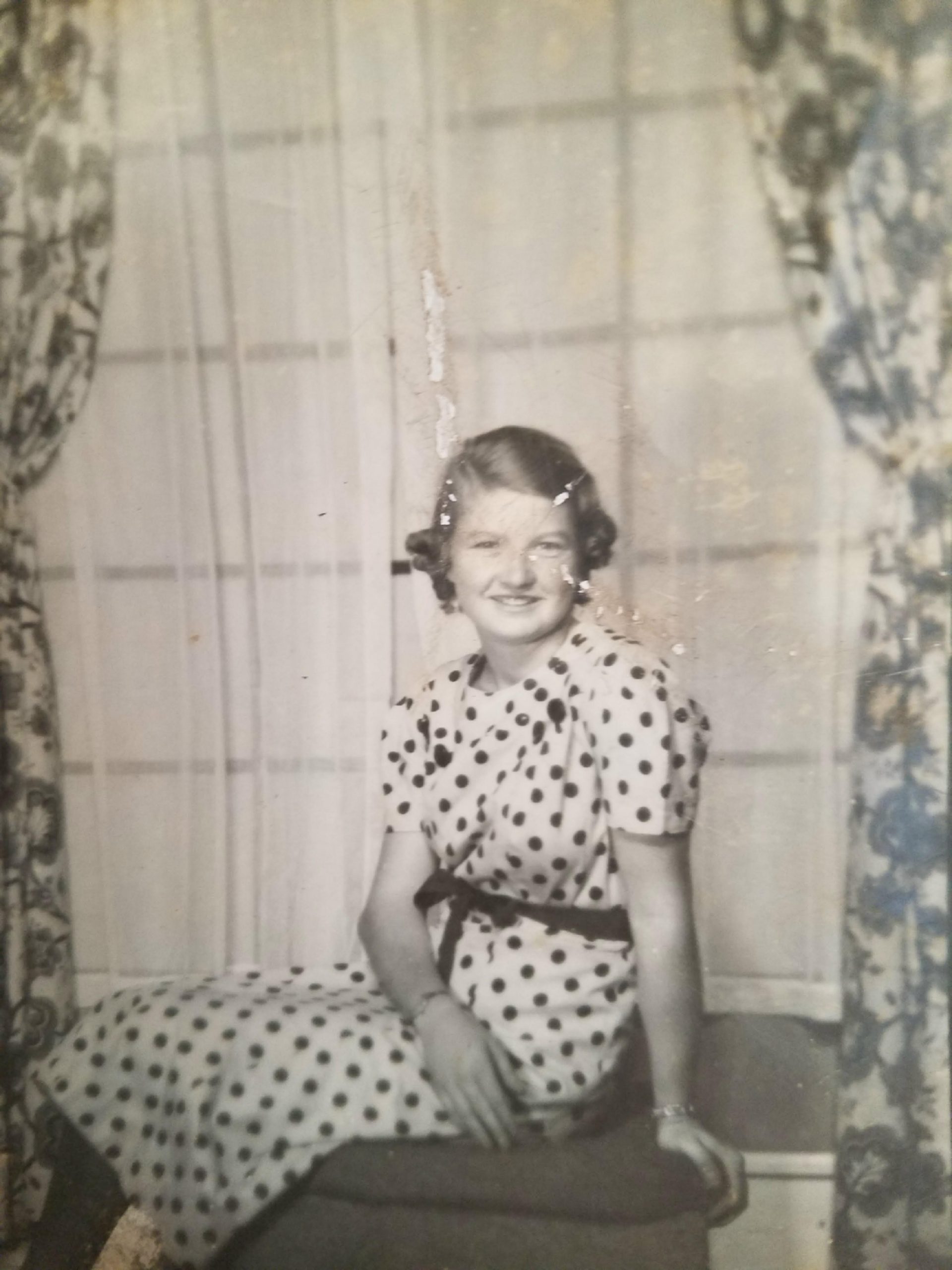
Ruby Crossley age 18
My grandmother, Ruby Estella Crossley Sizemore, grew up poor, a resident of the Beaumont Mill village and, later, the tiny farm town of Roebuck, both in Spartanburg county, with the odds stacked against her. Her mother, Lillie, was a kind, gentle woman, but she suffered from severe epilepsy. At that time, the early 1900s, little was known or understood about this malady, and her illness prompted fear in the community of her “fits.” It is easy to view such ignorance as “backwards” with the benefit of present-day knowledge, but it is abjectly unfair.
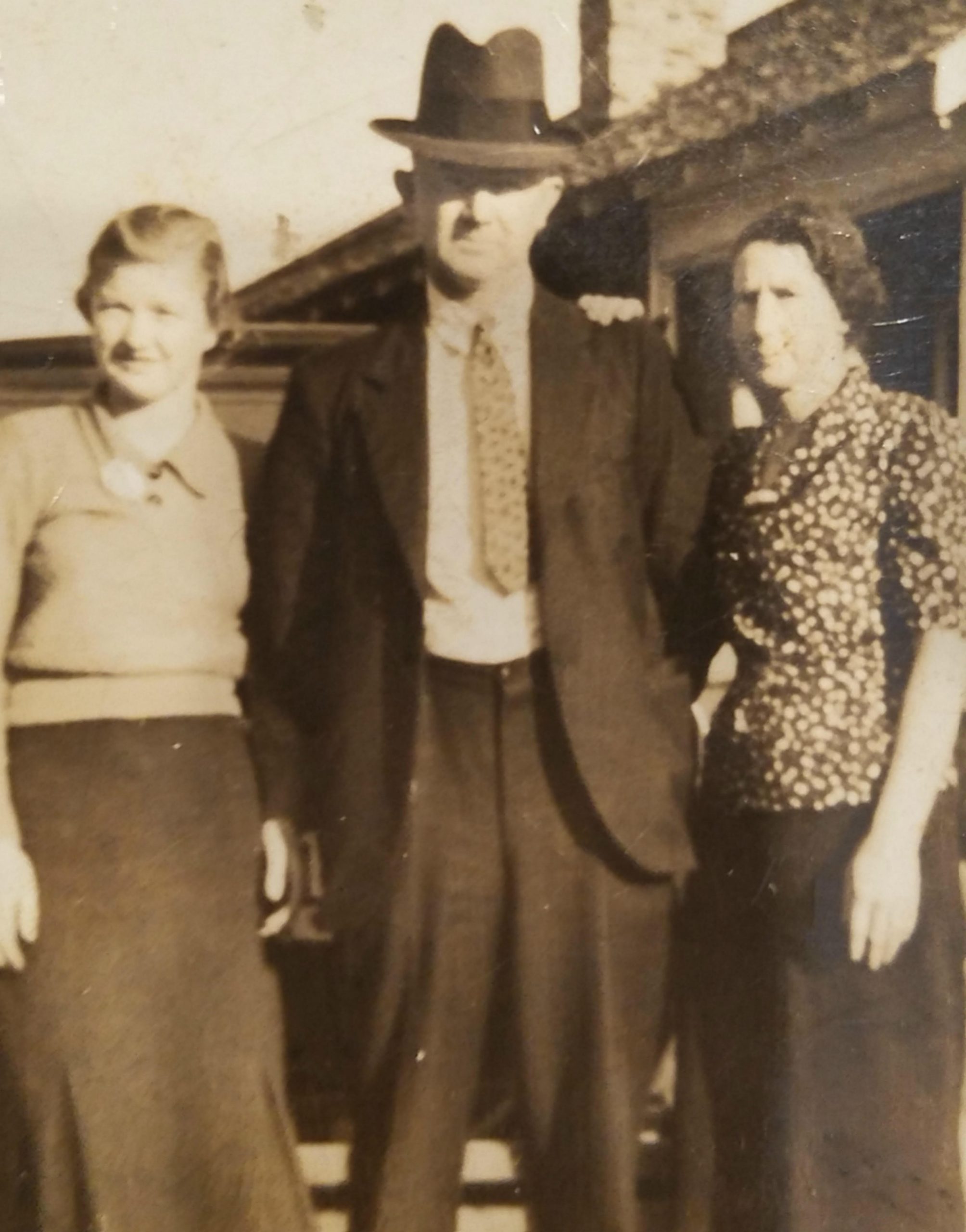
Ruby Crossley with parents, Roebuck, SC, around 1937
For people whose lives and livelihoods were spent in small towns centered around farms or mills, who were born, lived, and died entirely within a geographic footprint which sometimes spanned only blocks, it is unfair to burden them with the wealth of perspective we have now. They were fearful because her seizures, especially the grand mal ones, were understood within the limitations of their knowledge and the superstition that still pervaded much of the culture of that time.
During Ruby’s sophomore year of high school, the family moved to a tiny house in Roebuck, and Ruby excelled in academics and athletics at the little high school there. Lillie had been so proud and eager to attend the graduation ceremony for the first member of the family to complete high school. Instead, she would die just days before the ceremony, at age 48, the result of a seizure.
My grandmother was seventeen years old, and had spent most of her young life tending to her mother when no one else would. This formative experience left Ruby with a spirit of compassion and conviction, and she made up her mind that after high school she would pursue a career in nursing, where she could, perhaps, save others from the trauma her beloved mother had experienced.
Ruby’s father, George Washington Crossley, a man hardened by time and, perhaps, embittered by the hand life had dealt him, refused to allow her to attend nursing school, even when she passed the entrance exam and was accepted. At that time, such a decree from one’s father was not viewed as an obstacle to overcome, but as a mandate to be followed without question. The ramshackle wooden house in the middle of nowhere must have seemed to her a sort of prison where she would serve a life sentence for the crime of being born to a hard man and a frail woman.
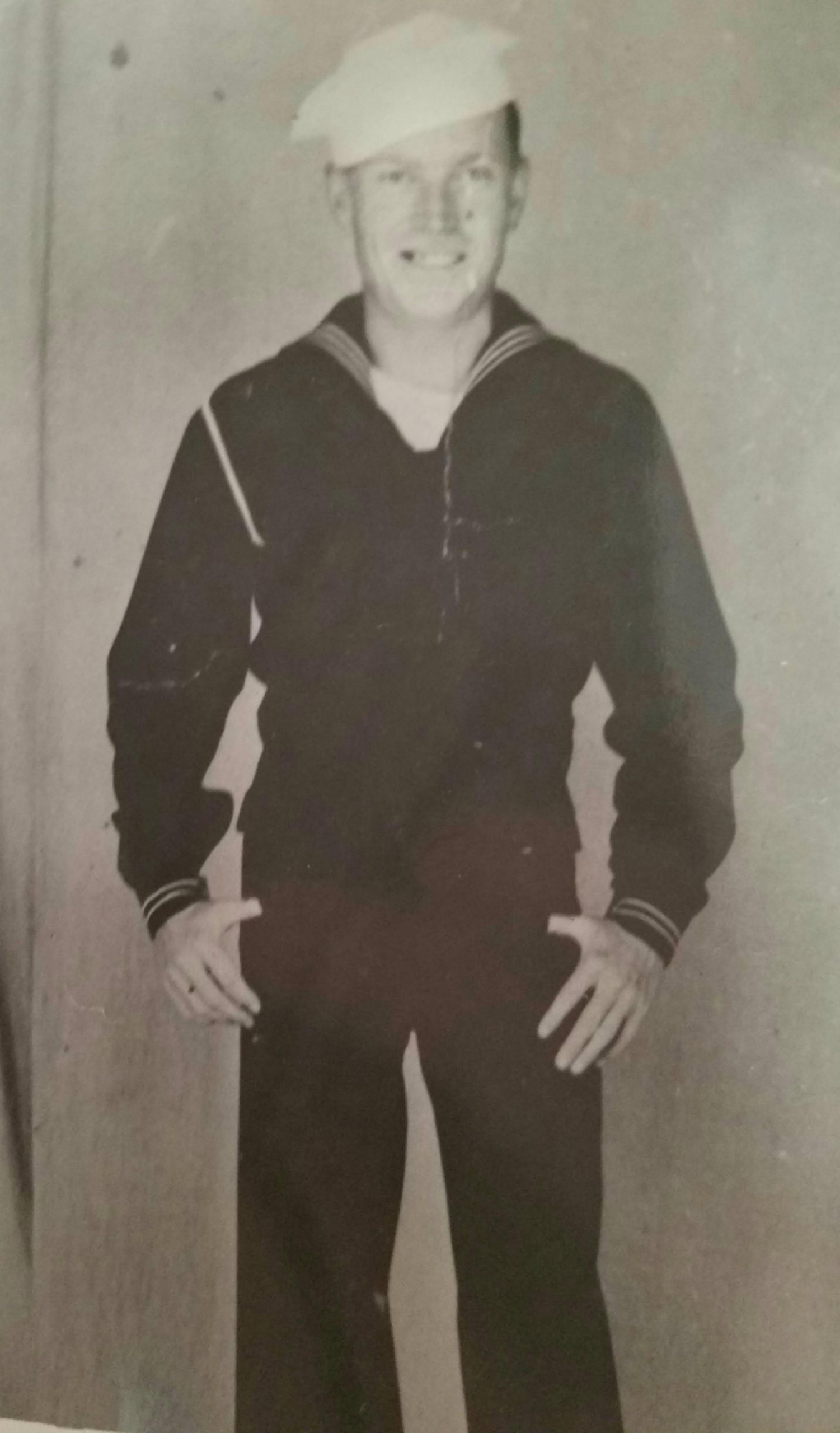
Carroll Sizemore, U.S. Navy
Though her mother’s death and the subsequent move upended Ruby’s life, there was a bright spot, and his name was Carroll. Carroll Cletus Sizemore was the product of a family that, like Ruby’s, had lived in the Upstate of South Carolina for generations, having emigrated from Scotland and Ireland in the 1700s. Carroll was a small-framed young man with an enviable mop of dark wavy hair, who was from a large and loving family.
He and his sister Gladys were affectionately known as “Butch” (her) and “Babe” (him) by their kin. His great-grandfather was a decorated Civil War veteran, his parents and grandparents much-loved fixtures in the Roebuck community who owned a cotton farm, and Baptists in good standing. Ruby and Carroll met at Roebuck High School and would marry just after graduation.
Only a few blissful years would pass for the newlyweds before dark forces abroad would drastically alter the trajectory of their love story. With the entrance of the US into World War II, the military provided an alternate path for those willing to enlist, a way out of the humdrum minutiae of mill and farm life. Like countless young men of his age and station, Carroll jumped at the chance to leave behind the monotony of small town life, the allure of expansive opportunity and experiences beyond his comfortable routine outweighing even the risk of death itself.
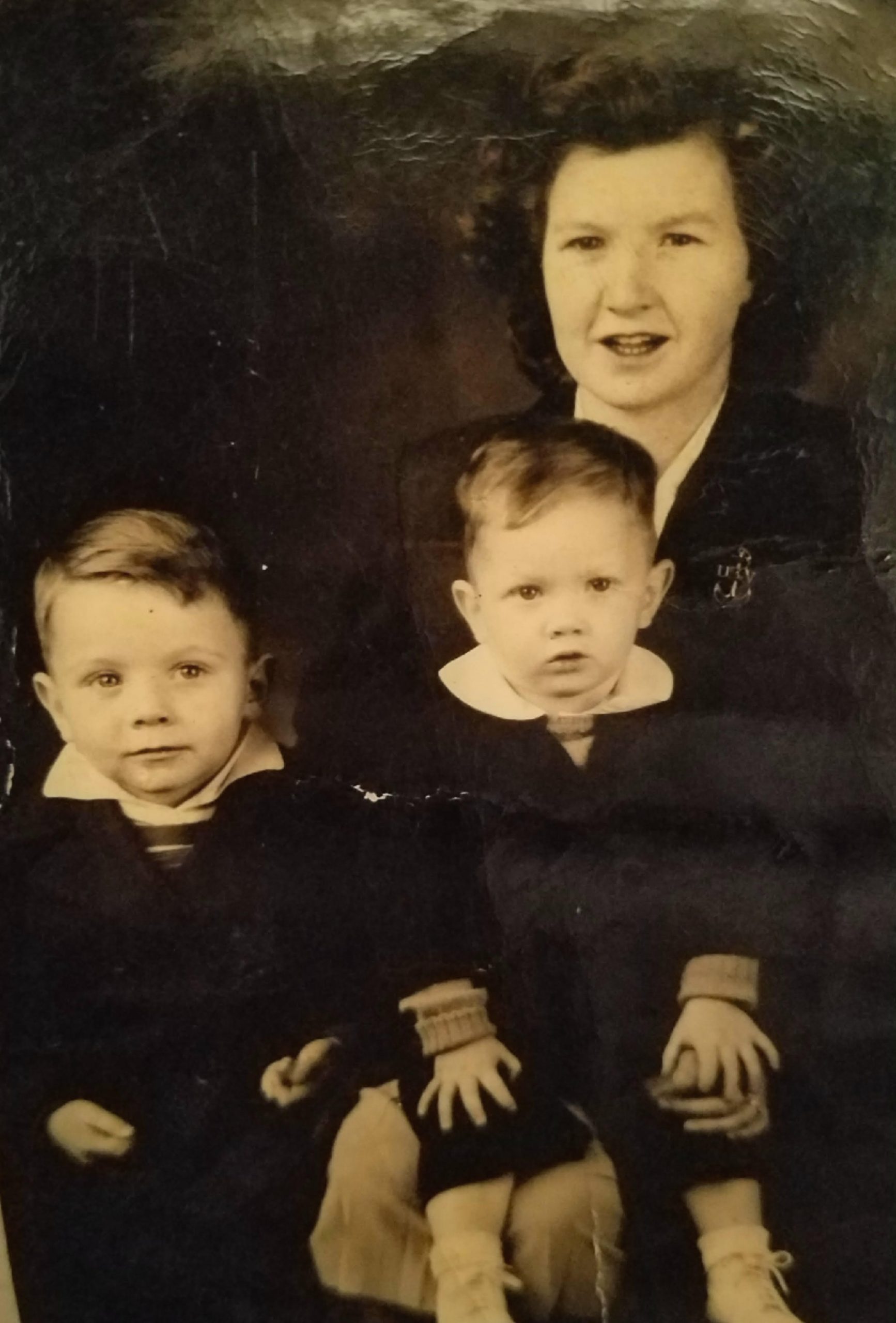
Ruby and sons
By this time, there were other, more personal considerations: two young sons, Jimmy and Gary, who completed their tidy nuclear family. Hoping to advance his prospects, and better provide for his family, Carroll enlisted in the Navy, and soon was kissing his wife and sons goodbye, and heading into the unknown.
He would become a gunner on the USS Missouri, known affectionately as the “Mighty Mo,” the ship which famously hosted the signing of the surrender by the Japanese. Carroll is there, in the pictures, a small, almost indistinct face in the crowd of sailors, but the slight boy from the Roebuck cotton farm would witness history. Historic moments are hard-won, of course, and the surrender came after countless attacks both from and upon the ship. Kamikazes attacked without notice, killing and injuring Carroll’s brothers-in arms. The Mo bombarded the shores of Okinawa, with Carroll among those doing the firing. The surrender was one of those all-too-familiar bittersweet moments in history where peace was purchased at an exceedingly high cost. Twenty three minutes, a speech by MacArthur, a few signatures, and the world could breathe again.

USS Missouri
But what of those who had fought? The men and women who returned from the the war had been ravaged by the experience. “Shell shock,” the term for what we now call PTSD, left many of these men and women husks of their former selves, their psyches as battered and broken as the towns and villages they left behind.
Carroll was no exception. And while others found solace, and maybe some desperate type of penance, in work or church, or simply pushed the nightmare down so far in their soul it could never resurface, Carroll drank. Virtually a teetotaler before the war, there now seemed to be no end to his thirst, for liquor, for beer, for redemption.
Redemption never came for Carroll, and his marriage crumbled. His sons, and eventually a new daughter, were simply not enough good to overcome the bad he had seen and been complicit in. When he would drink, he became the monster he now thought himself to be. Abusive, belligerent, wild-eyed and unpredictable, he would terrorize the family, and often find himself waking up in a cell. “I killed women and children…” he would mutter in a drunken stupor, crying piteously before succumbing to unconsciousness.
Ruby was heartbroken. The letters she kept from her husband’s time in the service show a man of gentle character, devoted to his family, who still loved his high school sweetheart utterly. But the man who wrote those letters was not the man who returned from foreign shores. Ruby and her children struggled to keep the household afloat; Carroll could no longer be depended on to hold a regular job. He had once been a talented woodworker and carpenter, and still found odd jobs in the community, once trading his services to a doctor in town in exchange for a piano for his daughter. But those brief blinks of his old self, of old times, became more and more scarce, and Ruby eventually filed for divorce. Unlike today, when divorce is as commonplace as marriage itself, in that time, especially in a small Southern town, it was fraught with stigma, and those who sought it did so at the risk of a kind of quiet shame that lingered in a haze over them for the whole of their life.
Ruby and Carroll were never completely estranged, though they would never live together again, and it seems the love that began in a dirt-road farm town decades before still lingered in some corner of their hearts. But Carroll could never loosen the stranglehold of his addiction, and he would die two days after Christmas in 1972, at the age of 55.
Ruby had spent a lifetime navigating through tragedies, disappointments, and setbacks, from being a child of the Depression to becoming a wife of the War. Now she would do so once more, managing her involuntary independence better than many could. She began working at the local Community Cash grocery store in the Meat Department. A far cry from the nursing job she had so desperately wanted, but she liked her work, and the people. And the people loved her.
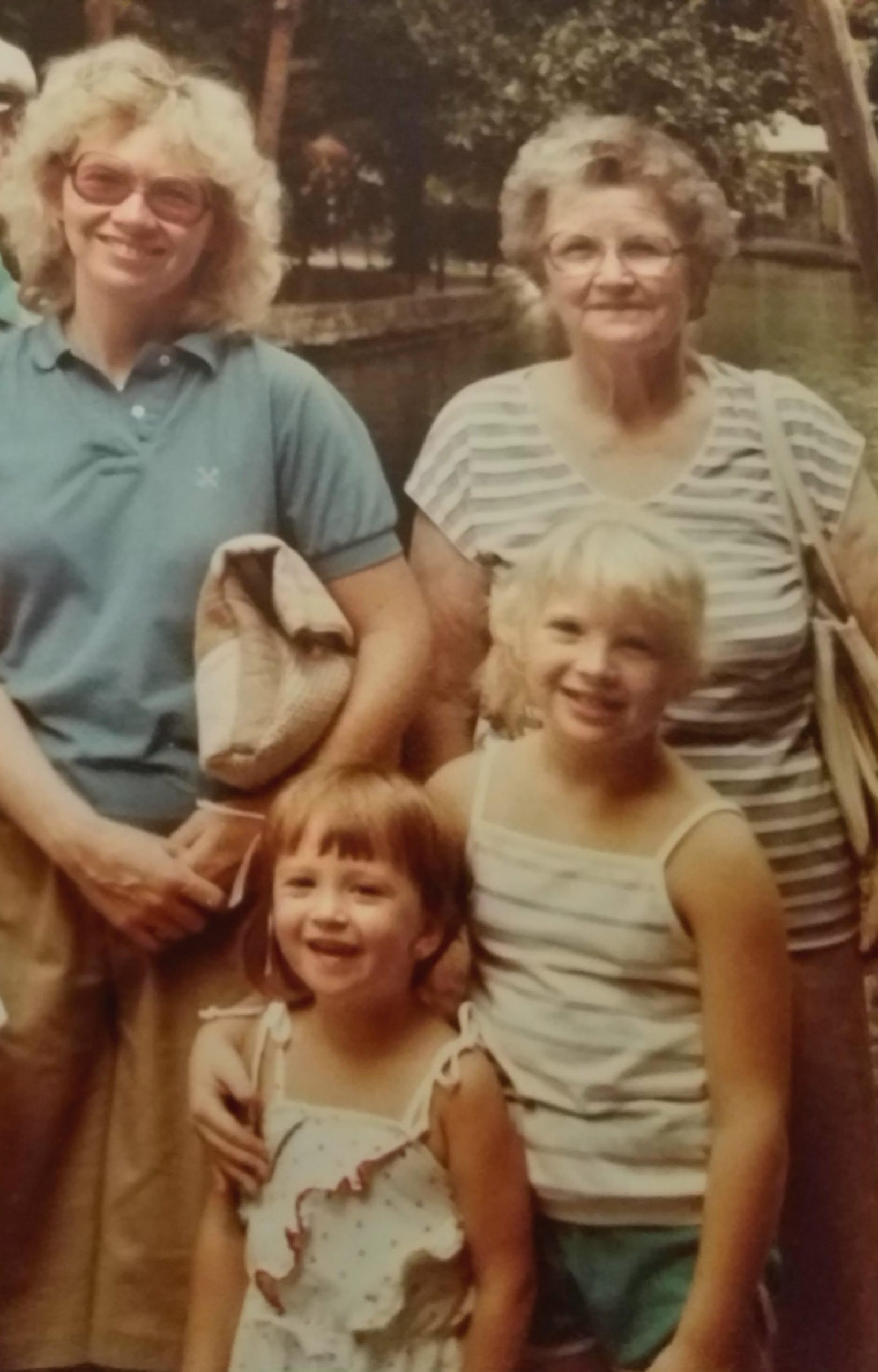
Ruby and family in Texas
Everyone knew “Ms. Ruby” and no one was a stranger. Years passed, grandchildren came, and she adored them all. Her oldest son, Gary, had moved to Texas, and she would make frequent visits, always packing an entire suitcase full of Duke’s mayonnaise for his family, because she was so troubled by its absence in their stores. Her travels were not limited to Texas, and she and her close-knit group of friends, all of whom had lost husbands, were on the go as much as their schedules would allow. She loved Branson, Missouri, and Mackinac Island, and was game to go anywhere and everywhere at the drop of a hat.
Ruby eventually moved in with her widowed sister-in-law, Helen. They shared an enormous Craftsman-style home, and Helen operated the New Method Laundry & Dry Cleaners next door to the house. A series of big, and then bigger, dogs kept them company and kept them safe in their not-always-safe neighborhood.
The basement portion of the home where Ruby lived was bitterly cold in the winter (heated only by oil heat) but the impossibly-heavy quilts she would cover us grandkids with when we slept over nearly paralyzed us with warmth. There were real feather pillows, too, and the sleep I slept at her house was undisturbed and deep. It was a modest dwelling, with a tiny kitchen she would somehow magically transform into a makeshift restaurant, cooking and serving up enough food to feed the entire community, should they happen to stop by. There was a matching couch and recliner, both comfortable despite their rough tweed-like upholstery, and some particle-board tables that never sat exactly flush with the floor, and always wobbled just enough to make you concerned about any beverage you placed on them.
It was upon one of those tables that family photographs were proudly displayed. Me, my brother, our cousins, all in our picture day finery, encased in glass and cheap gold frames. And then, there was the other cousin. Resplendent in a fur-trimmed cape spangled six ways to Sunday, this cousin sat smiling his impossibly white smile and sporting the most miraculous and gravity-defying hair-do my young eyes had ever seen. I knew his name (though not the correct pronunciation) because it was written in script on the photo. “Liberace.”
It never occurred to me once during my childhood to ask about this cousin: who was he, where was he, why did he never come visit? I just took for granted that he would turn up at a Family Reunion someday and we’d catch up over some fried chicken and potato salad. And then I could ask him about those glorious rings that seemed to take up half his hand.
It wasn’t until my late 20s that I had the epiphany: Oh! It was *that* Liberace (as if there were others) in the picture. By the time of my childhood, he wasn’t exactly a household name, so I had perhaps heard the name and seen his picture, but never simultaneously, thus allowing my ignorance to flourish for decades. I laughed for a full five minutes as I realized that the fancy guy in the photograph wasn’t a cousin after all. I thought it strange at first that my simple, hard-working, God-fearing, modest-living grandmother would be so enamored of such a flashy man, whose entire being could best be described as “jewel-encrusted.” But I realized after a while that he represented the antithesis of her life in nearly every respect. And maybe there was a wistfulness for a flash of sequined excess and extravagant showiness in her simple life. Or maybe she just liked his music.
Whatever the reason, I was a little sad when I found out Liberace wasn’t actually my cousin. Not for me, mind you. For him, because he would have loved my grandmother Ruby. Everyone did.
–
 About the Author: Shauna is an Upstate SC native and graduate of Converse College and ETSU. With a passion for both history and writing (and an advanced degree in Appalachian Studies that her parents SWORE she would never use,) she is excited to be able to share stories of the colorful people and places of the South. In her spare time, she enjoys archery, rollerblading, and looking for that next great story.
About the Author: Shauna is an Upstate SC native and graduate of Converse College and ETSU. With a passion for both history and writing (and an advanced degree in Appalachian Studies that her parents SWORE she would never use,) she is excited to be able to share stories of the colorful people and places of the South. In her spare time, she enjoys archery, rollerblading, and looking for that next great story.

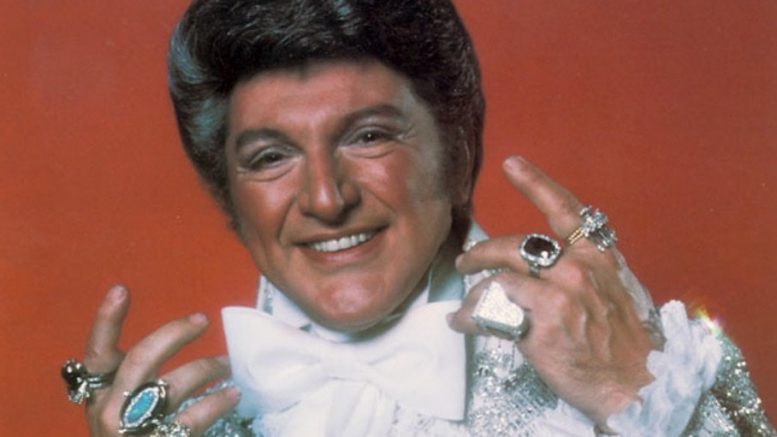
Be the first to comment on "My Cousin, Liberace"